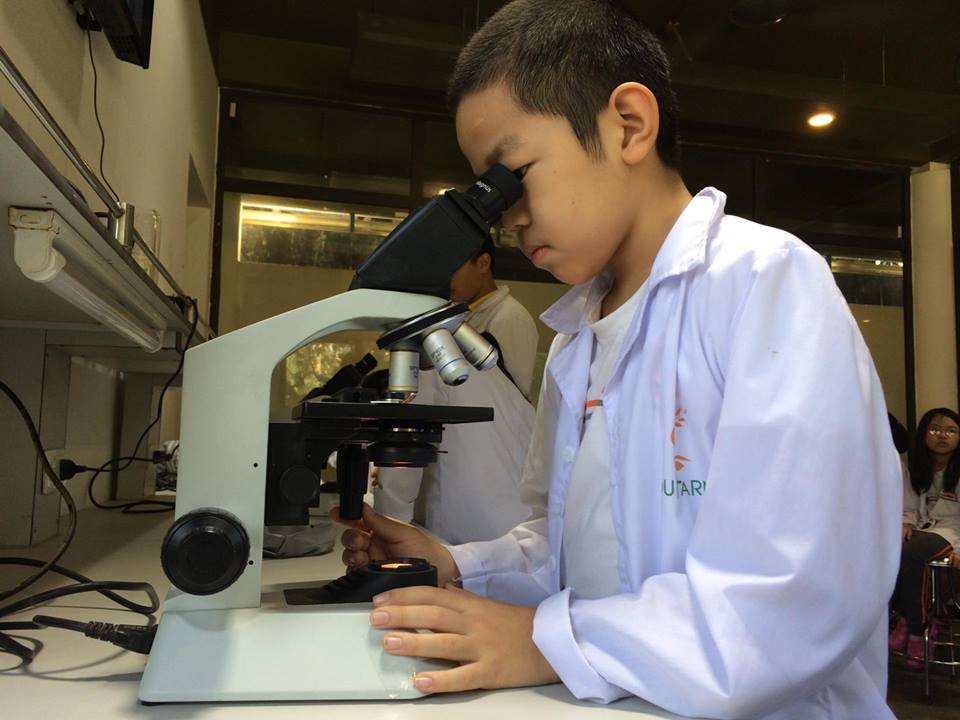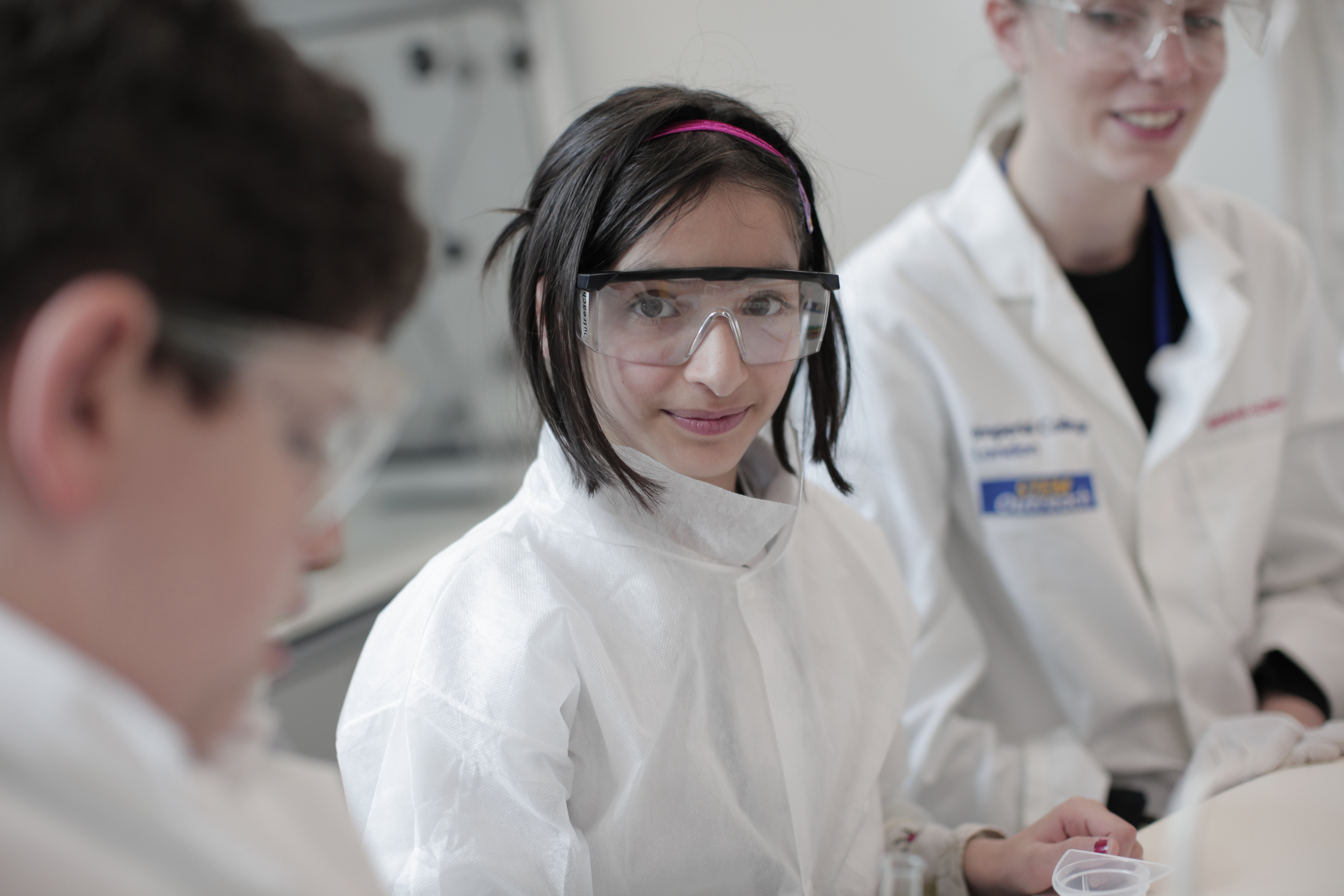STRAND CHOICES AND DESCRIPTIONS
Week 1 2nd - 6th July
Ages 12 - 14
- Chemistry
- Young Biologists
- Computer Science
- Robotics*
- Civil Engineering with Physics*

Week 2 9th - 13th July
Ages 12 - 14
- Chemistry
- Young Biologists
- Computer Science
- Civil Engineering with Physics
- Robotics

*Please note the content for this strand is repeated in week two, please choose a different strand for your second week
Week 1 2nd - 6th July
Ages 15 - 17
- Chemistry
- Bioscience
- Biomedical Science
- Mechanical Engineering+

Week 2 9th - 13th July
Ages 15 - 17
- Chemistry
- Computer Science
- Environmental Science
- Chemical Engineering +

+ If choosing this strand in week one, we recommend choosing the accompany strand marked + in week 2
Chemistry
Chemistry is all around us, especially in the food we eat and the perfumes we use on ourselves and our surroundings. This course will explore the chemistry of smell and taste to provide you with a new understanding of the invisible world of chemistry and the creation of natural products. From the biochemistry of our senses to the different ways in which synthetic and natural flavours can be used, get ready to get hands‐on with practical investigations from the start of the course. This course is tailored for both ages 12-14 and 15-17 year old students, and during the week you will learn vital STEM skills such as lab techniques, team-work and developing experiments to investigate theories.
Suitable for age 12-14 and 15‐17
Computer Science
This programme will start by introducing you to the general field of artificial intelligence, and will then focus on specific state-of-the-art techniques. More specifically, you will learn about deep learning, what neural networks are, how you can design, implement and customize them, and ultimately how you can train them to behave in specific ways. In order to better understand their limits of performance, the programme will also touch on several general machine‐learning ideas. At the end of the programme, you should have sufficient knowledge and skills, to build your own deep learning solutions, given any new set of problems.
Suitable for age 12-14 and 15-17
Young Biologists
As young biologists you will observe the amazing microscopic and macroscopic world of living things. We'll be growing our own microorganisms and testing just how effective antibiotics are. Have you ever wanted to touch and hold a real heart or lung? Well this is your opportunity as we move into the dissections. We'll also look at the molecule that makes us us, as we extract DNA. This programme will also introduce you to how innovations in bioscience have been central to the production and protection of food resources and designing new technologies to improve human health. Develop a range of STEM skills through investigating, questioning and working in teams to discover the science of our living world.
Suitable for age 12-14
Robotics
Technology is changing the way that engineers think. The future of successful economies depends on those who are able to design and build innovative technology. This course focuses on the engineering design process and the learning habits of mind. Taking thought to working prototype, making ‘things’ that work and making ‘things’ work better using innovative construction and automation kits.
Suitable for age 12-14 (recommended students choose Civil Engineering and Physics for week two)
Civil Engineering and Physics
Civil Engineers design, construct and maintain many essential public and private infrastructures and systems such as roads, railways, buildings and even water and sewage systems. The work of a Physicist ranges from applications in the very university this strand is delivered in, to applications beyond our planet! During this strand you will explore the innovative world of civil engineers and physicists through both classroom and practical work. Through hands on activities you will be challenged, develop team‐work skills and learn about the fascinating world of engineering and physics.
Suitable for age 12-14 (recommended students choose Robotics for week two)
Biomedical Science
Solve a crime case or two during your one week with the Biomedical Sciences Department, whilst being introduced to current medical health issues including tropical diseases. The many hands on activities involves an array of medical sciences techniques, whilst the accompanying lectures explain their underlying principles and uses in different scenarios including diagnosis of diseases or even in solving murder cases. The week will include a field visit to a healthcare facility.
Suitable for age 15-17
Environmental Science
This programme will help you understand and appreciate human impacts on the planet, and the steps we can all take to limit these impacts. It will cover topics such as pollution, climate change, and biodiversity loss, and take a look at some of the new and exciting approaches to sustainable environmental management that are being developed to combat human impacts. It will be activity based, and you will do things such as running computer simulations of your own carbon footprint, and look at animals ranging in size from tiny insects to elephants.
Suitable for age 15-17
Bioscience
This programme will introduce you to how innovations in biosciences has been central to the production and protection of food resources and designing new technologies to improve human health. The programme will cover topics such as climate‐smart plants, post-harvest technology, molecular farming, genetics, microbiology, nutrition and public health. Some of the activities include plant growth monitoring for drought and salinity tolerant plants, edible coatings that protect fruits and vegetables, production of animal vaccines using plants as bio‐factories, microbiology techniques for food contaminants and sustainable ingredients for future foods.
Suitable for age 15-17
Mechanical Engineering
Mechanical Engineers can work on everything from product research and development to design and manufacture. In this strand you will become pragmatic scientists for the week using the engineering design process to solve several challenges. The course aims to provide practical experience to complement theoretical understanding of engineering. You will need to employ the best of your project management, problem solving and mechanical design skills to work together for a successful outcome at the end of the week!
Suitable for age 15-17 recommended students choose Chemical Engineering for week two)
Chemical Engineering
Chemical Engineering can be defined as the processing of materials on a commercial scale, ranging from traditional commodities and utilities through to modern, high added-‐value products. This involves the integration of engineering principles and applications with chemistry and other sciences. Additionally, environmental issues related to process industries feature as important aspects of the discipline in line with the growing need to harmonize industrial and commercial activities with the protection and enhancement of the environment. By participating in the chemical engineering strand, you’ll be exposed to the fundamentals of chemical engineering such as mass and energy balances, up‐scaling of processes, and generation of process flow‐sheets. There will be opportunities to be involved in practical hands‐on activities related to chemical engineering and an industrial site visit. Ultimately, the strand aims to impart an awareness of chemical engineering and the key technical skills needed at a level suitable for pre-‐University students.
Suitable for age 15-17 recommended students choose Mechanical Engineering for week one)

